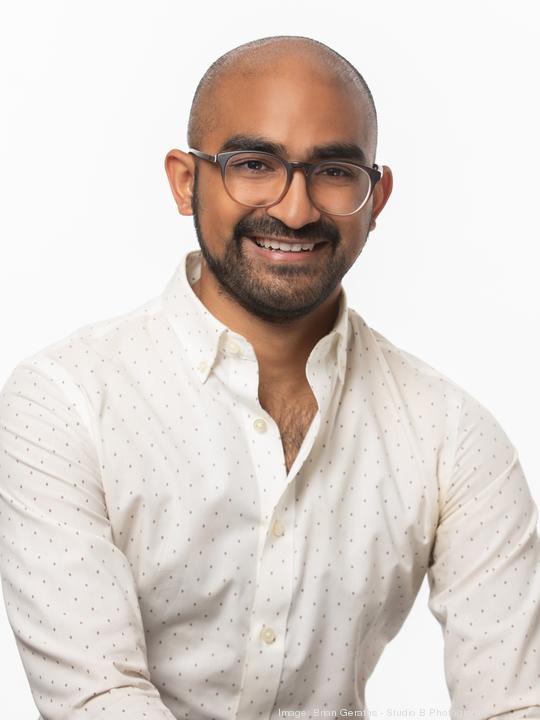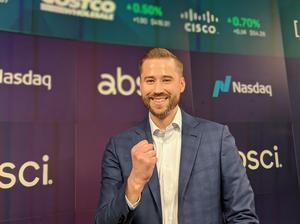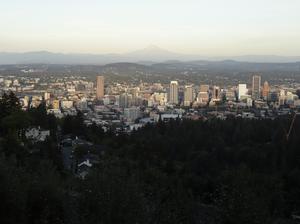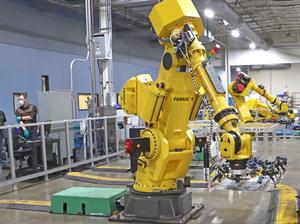
Arsh Haque has been in Portland for five weeks and is getting to know the community and the entrepreneurial ecosystem. They are the new director of the Portland State University Business Accelerator, a startup support organization that has been around since 2007 and worked with 140 companies.
Haque grew up near Louisville, Kentucky, and attended the University of Louisville. They did graduate study in Europe in public policy and then received a law degree from University of Southern California. They were living and working in Los Angeles before moving to Portland this summer.
Throughout their career they have built startups and worked in education. We caught up with Haque to chat about their plans for the accelerator and the work of startup ecosystems.
How did the PSU Business Accelerator role land on your radar? My background was in economic development, higher education and tech startups. So, a role like a university spin out accelerator, I get to play in all of this territory. Building up broad economic development for Portland, but doing it within that niche context of the university.
What is your vision for the accelerator? One of the hopes (PSU) had and I have a lot of experience in, is bringing the DEI lens into the startup accelerator arena. The experience for an atypical founder building a startup is dramatically different than for other startups. One of the potential visions for PSU moving forward is really enhancing access to entrepreneurship for atypical founders. Both from lived experience and academics and scholarship and practitioner, I have a niche in DEI entrepreneurship.
For folks not familiar, what does it mean to be an atypical founder? It’s a helpful umbrella term, but I guess I can start with my own experience as an example of what it means to be atypical. “Typical” founders tend to be sort of an early 2000s stereotype of what you might see in the movies: white guy in a hoodie working on a business-to-business software or a social media platform. But, my experience is a queer, person of color. I was raised Muslim in post-9/11 South, I have a diagnosed mental illness and was on food stamps not that long ago. That all features in making the journey of entrepreneurship really different and challenging. I remember fundraising in the South and I would do emails and I would make sure I had a certain cadence in phone calls. I would avoid in-person meetings because in-person meetings had a measurable difference in my success rate.
What does it look like to bring this lens to the Portland accelerator? Is it a matter of how you make the programming accessible? Who you invite? Who is on event panels? I think at this point in a lot of the DEI conversations, people now care about it and are moving to the solution space and that’s a rooted question. There are at least two elements for how I have seen success in the past and I plan on bringing here. One is programmatically. Creating modified curricula that is designed for atypical audiences is something I specialize in. An example, right now there is almost no curricula on minimizing the harm that atypical founders experience. How do you deal with getting misgendered during an investor call? It’s not something I have seen and it’s the type of programming that I hope to build out. How do you intentionally set boundaries in a way that balances your interests and your authenticity and personal harm, frankly. And the other side of it is around accountability and building advisory boards with the stakeholders that you want.
How would you change the way we think about startups, high-growth companies and founder stories? One of the elements I’m excited to tinker with is to expand the definition of success. (Our idea now) isn’t even the 2000s, it’s the '90s. The fact that equity plans for startups are four years, (when) on average it takes close to six to nine years. It’s a really dated vision. A startup founder is someone whose personal circle gets then $250,000 and they grow the company to a billion dollars in six years. Our definition of success informs so much of how we make choices. We can expand that definition to things like you’re the first person of your gender or race to build and sell a tech startup. Maybe it was for $30 million, but you did it in a way that preserves the mental health of your team and minimizes harm.
What are your impressions of the Portland community so far? It has the potential for health, which is sort of a strange way to phrase it. But, the ecosystems I’m familiar with are Los Angeles, San Francisco, Chicago, Paris. I think it reminds me most of some of the European ecosystems in that people in Portland seem to care about living a good life much the way the Parisians and German entrepreneurs that I met had. Portland seems to have a lot of founders who are interested in making a difference, building something big, but not destroying their lives over it.








